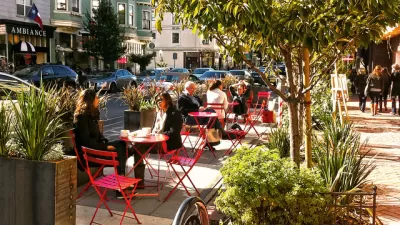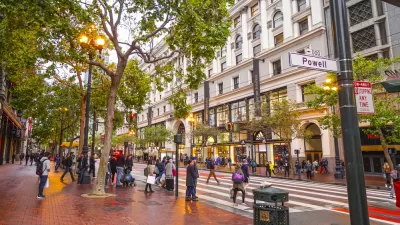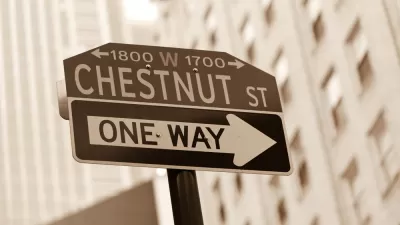A new study from Drexel University's Lindy Institute for Urban Innovation surveys the obstacles and challenges making it more difficult to build car-free public spaces, like plazas and parklets, in Philadelphia.

"Plazas and parklets — parking spaces repurposed for other uses — remain a relative rarity in Philadelphia, and a new study has determined that a lack of staff, funding and leadership, and a convoluted bureaucracy contribute to keeping neighborhoods from embracing these improvements," according to an article by Jason Laughlin.
Despite the wide variety of options available for transforming public space currently devoted to automobile travel or storage, barriers to entry remain at almost every step of the process in Philadelphia, according to a new report by researchers from Drexel University, with help from officials at the city.
According to Laughlin, "the study found people consistently didn’t have enough information about how to apply to build a parklet or plaza, lacked money to invest in one, and were confused by the city’s processes. A flow chart of the city’s application to create a parklet or plaza showed an eight-step odyssey through city agencies and public approvals that offered no clear sense of cost or specifics about what was needed for a site to gain approval. Reviewing an application could take days or a year, depending on how busy the relevant agencies are."
The article includes more on the benefits of parklets and plazas, and local examples of processes that have achieved completion in Philadelphia despite the myriad challenges that stood in the way.
FULL STORY: When it comes to adapting street space for pedestrians, Philly needs a better road map

Alabama: Trump Terminates Settlements for Black Communities Harmed By Raw Sewage
Trump deemed the landmark civil rights agreement “illegal DEI and environmental justice policy.”

Planetizen Federal Action Tracker
A weekly monitor of how Trump’s orders and actions are impacting planners and planning in America.

Why Should We Subsidize Public Transportation?
Many public transit agencies face financial stress due to rising costs, declining fare revenue, and declining subsidies. Transit advocates must provide a strong business case for increasing public transit funding.

Understanding Road Diets
An explainer from Momentum highlights the advantages of reducing vehicle lanes in favor of more bike, transit, and pedestrian infrastructure.

New California Law Regulates Warehouse Pollution
A new law tightens building and emissions regulations for large distribution warehouses to mitigate air pollution and traffic in surrounding communities.

Phoenix Announces Opening Date for Light Rail Extension
The South Central extension will connect South Phoenix to downtown and other major hubs starting on June 7.
Urban Design for Planners 1: Software Tools
This six-course series explores essential urban design concepts using open source software and equips planners with the tools they need to participate fully in the urban design process.
Planning for Universal Design
Learn the tools for implementing Universal Design in planning regulations.
Caltrans
Smith Gee Studio
Institute for Housing and Urban Development Studies (IHS)
City of Grandview
Harvard GSD Executive Education
Toledo-Lucas County Plan Commissions
Salt Lake City
NYU Wagner Graduate School of Public Service





























